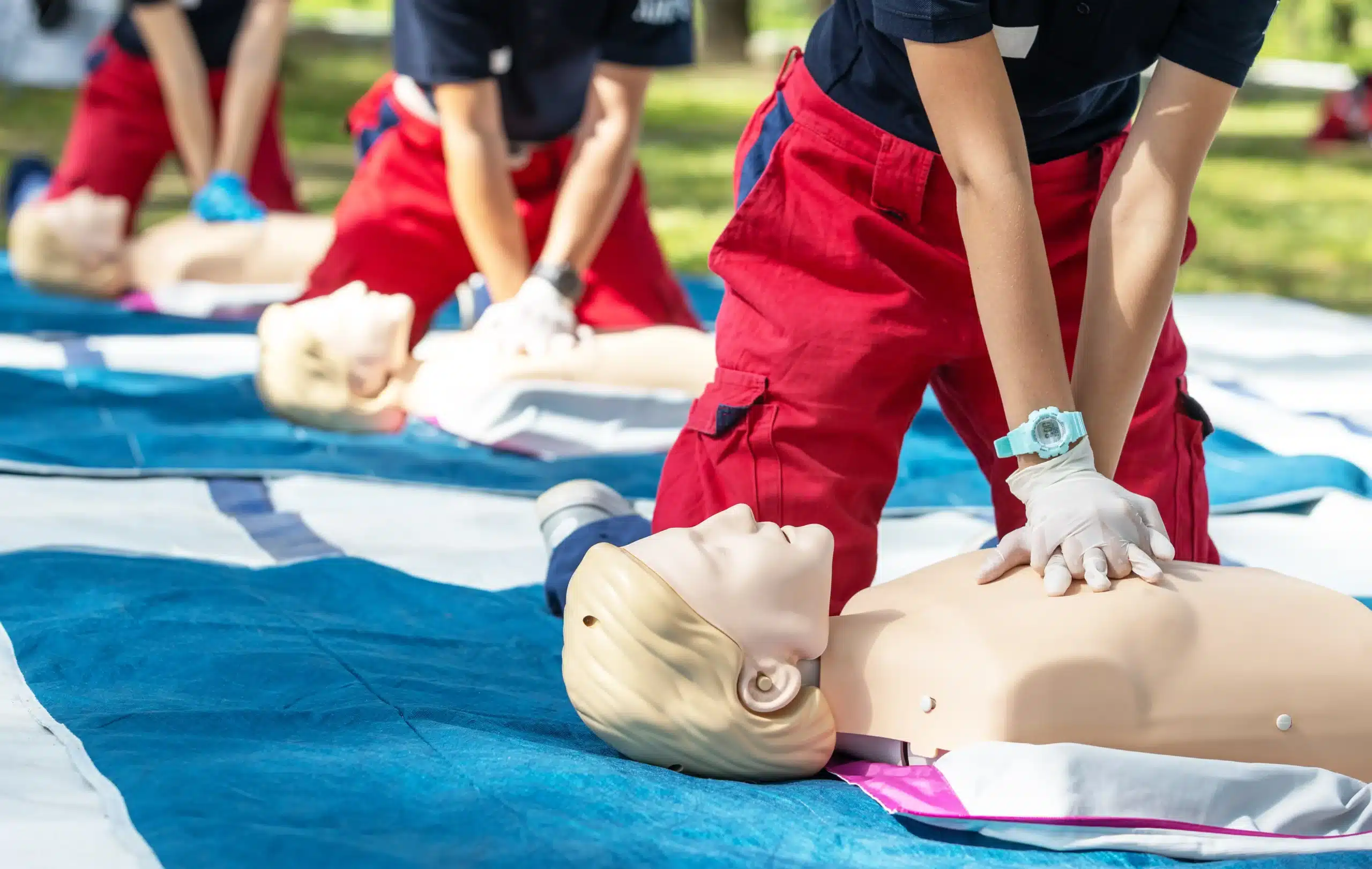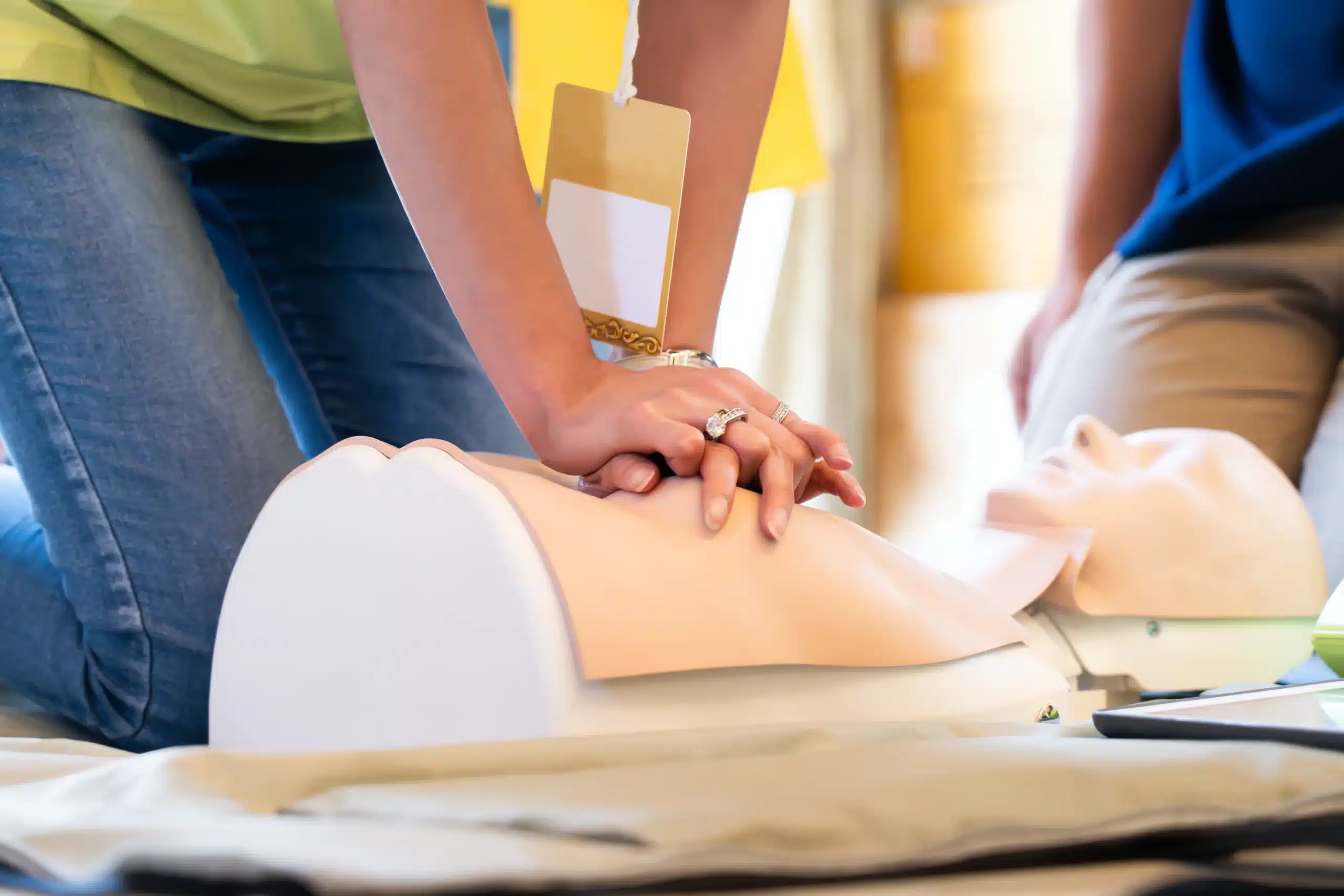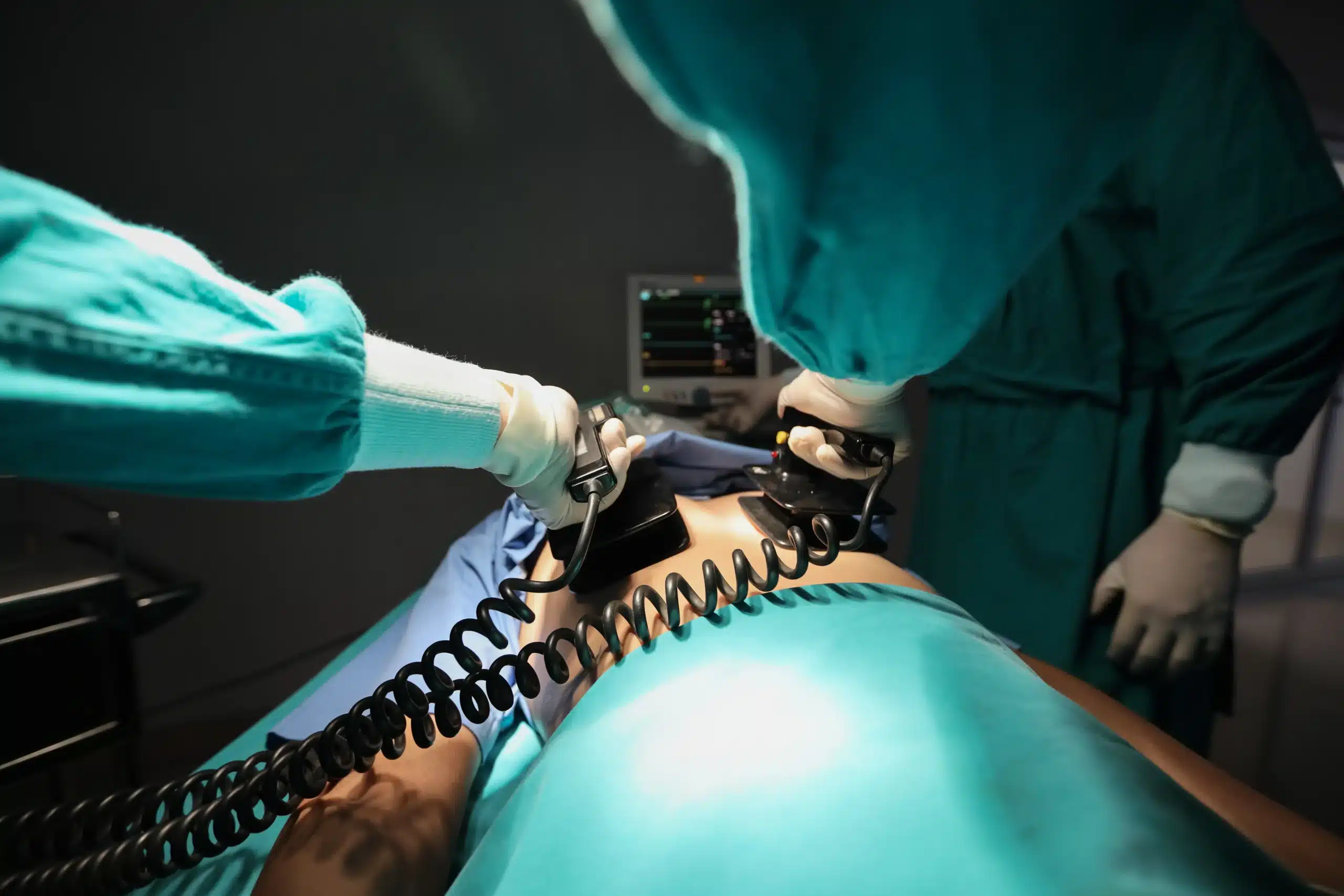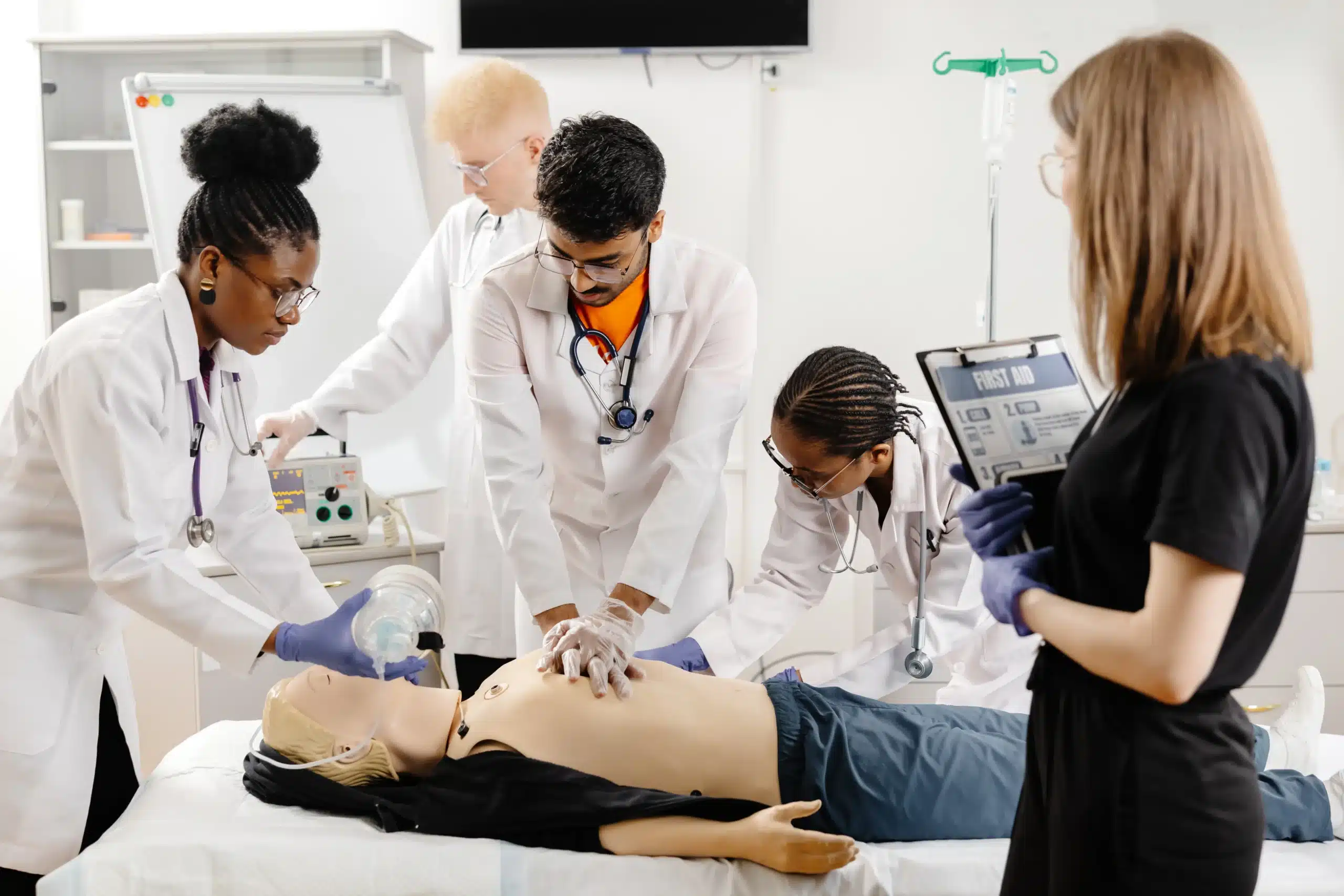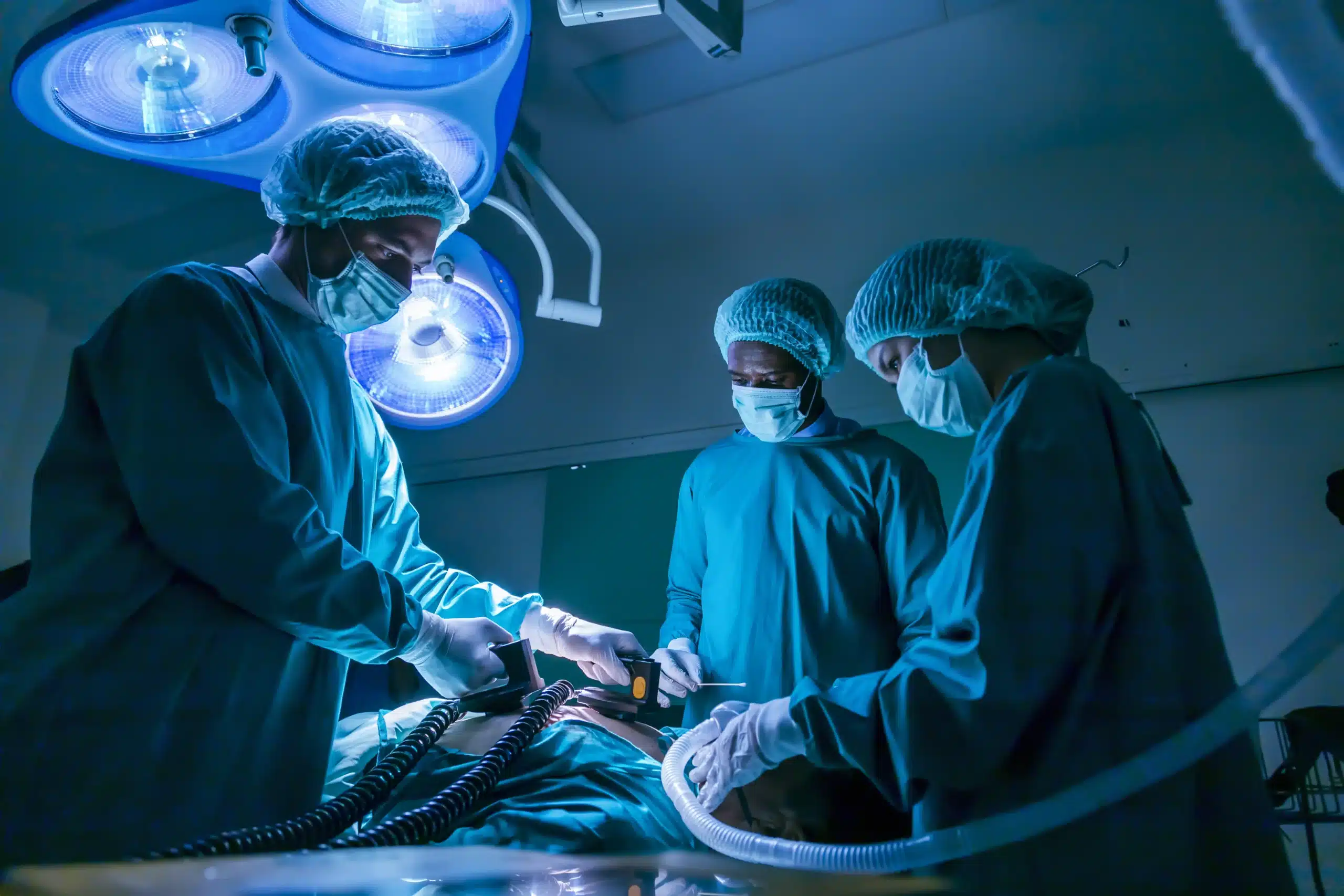As a healthcare provider in San Francisco, you’re part of a dynamic and demanding medical community. Staying ahead of the curve means having the right skills and certifications to handle any situation. Advanced Cardiac Life Support (ACLS) is more than just a certification; it’s a comprehensive training program that equips you with the knowledge and confidence to manage complex cardiovascular emergencies. This guide explores the importance of advanced cardiac life support in SF, providing valuable information for healthcare professionals at all levels. We’ll cover the key components of ACLS training, the benefits of certification, and how to find the right program in San Francisco to fit your needs.
Key Takeaways
- ACLS is crucial for healthcare professionals: It provides advanced life-saving skills for cardiovascular emergencies, improves career prospects, and shows dedication to excellent patient care. Find a training format—in-person, online, or hybrid—that suits your needs.
- Choose a respected San Francisco ACLS provider: Seek AHA-certified courses, instructors with solid experience, and flexible scheduling. Consider factors like cost, location, and resources. Safety Training Seminars offers a low price guarantee and a range of courses.
- Stay current with your ACLS certification: Keep up with the latest AHA guidelines, pursue continuing education, and connect with local healthcare networks. Regularly practicing your skills ensures you’re always ready to provide top-notch patient care.
What is ACLS?
Advanced Cardiovascular Life Support (ACLS) is a critical training program for healthcare providers. It equips them with the knowledge and skills to manage life-threatening cardiovascular emergencies. ACLS focuses on teamwork, effective communication, and high-performance resuscitation techniques. It goes beyond basic life support (BLS) to address complex situations like cardiac arrest, stroke, and acute coronary syndromes. This advanced training empowers medical professionals to make quick, informed decisions and provide the best possible care during critical moments. Learn more about our ACLS courses.
Key ACLS Training Components
ACLS training covers essential components, teaching providers how to rapidly assess a patient’s condition, identify the underlying cause, and implement appropriate treatment strategies. Team dynamics and communication are emphasized, ensuring seamless teamwork in high-pressure situations. Through realistic simulations and hands-on practice, participants develop confidence and proficiency to deliver effective interventions, monitor patient responses, and make real-time adjustments to care. ACLS training often includes megacode simulations—mock emergency scenarios—allowing participants to apply their skills in a controlled environment.
Why Healthcare Professionals Need ACLS
For healthcare professionals involved in emergency cardiac care, ACLS certification is often a job requirement. It signifies a higher level of competence in managing cardiovascular emergencies and demonstrates a commitment to providing high-quality patient care. Regular ACLS renewal ensures skills and knowledge remain sharp, keeping professionals current with the latest guidelines and best practices. This ongoing training is essential for maintaining proficiency in a rapidly evolving medical field and contributes to improved patient outcomes. Holding a current ACLS certification can also enhance career opportunities and demonstrate professional development.
Top San Francisco ACLS Providers
Finding the right Advanced Cardiac Life Support (ACLS) training provider is crucial for healthcare professionals. Here are a few options in the San Francisco area:
Safety Training Seminars
Safety Training Seminars offers AHA courses in CPR, BLS, ACLS, and PALS at competitive prices, making these essential skills accessible. They hold classes daily at over 60 locations across Northern California, including San Francisco, Daly City, San Mateo, and Oakland. Their commitment to excellent customer service and a low price guarantee makes them a solid choice.
HeartStart CPR
HeartStart CPR provides AHA-certified ACLS initial and renewal classes throughout the San Francisco Bay Area. They prioritize comprehensive, current training to give healthcare professionals the skills to handle cardiovascular emergencies confidently. Check their website for their ACLS course schedule.
Bay Area CPR
Bay Area CPR, a woman-owned AHA Training Center, offers high-quality AHA BLS, ACLS, PALS, CPR, and First-aid courses throughout the San Francisco Bay Area, with classes available daily. This flexible scheduling accommodates busy professionals.
UCSF Kanbar Center
The UCSF Kanbar Center offers AHA courses in BLS, ACLS, and PALS. Keep in mind that registration is currently paused until January 15, 2025, for a system update. Check their website for updates as that date approaches.
American Heart Association Training Centers
Staying current with the latest AHA guidelines is essential for providing effective patient care. The AHA regularly updates its resuscitation and emergency cardiovascular care guidelines, including revised recommendations for using vasopressors and calcium intra-arrest. You can find more information on these updated guidelines from the Cardiology Advisor. This underscores the importance of keeping your ACLS training current.
ACLS Certification: Costs & Options
Getting ACLS certified or recertified doesn’t have to break the bank. Understanding the costs and different options available can help you plan and budget effectively. Here’s a breakdown of what you can expect in San Francisco:
Initial Certification Prices
The initial ACLS certification course typically costs around $260 and involves about 12 hours of instruction. This comprehensive training covers everything you need to know to confidently respond to cardiovascular emergencies. Safety Training Seminars offers a low price guarantee, so you can be confident you’re getting the best value for your investment. Register for an ACLS course today.
Renewal Course Costs
If you’re already ACLS certified and need to renew, the renewal course is generally around $190 and takes about six hours. This refresher course focuses on updating your skills and knowledge to maintain your certification. You can find ACLS renewal courses in San Francisco through Safety Training Seminars.
Pricing Factors
Many ACLS programs now offer a blended learning approach, combining online learning with an in-person skills test. This flexible format allows you to learn the material at your own pace and then demonstrate your proficiency in a practical setting. Learn more about ACLS certification and renewal courses online in San Francisco.
Same-Day Certification
A major advantage of many ACLS courses is the availability of same-day certification cards. This means you’ll receive your certification card immediately upon successful completion of the course, allowing you to put your new skills to use right away. Find a course that fits your schedule.
Choose the Right ACLS Training Format
Deciding on the best ACLS training format depends on your learning style, schedule, and preferences. Let’s break down the pros and cons of in-person, online, and hybrid ACLS courses to help you make the right choice.
In-Person Training Benefits
In-person ACLS training provides a structured learning environment ideal for hands-on learners. Direct interaction with experienced instructors at Safety Training Seminars allows for immediate feedback and clarification on complex concepts. This format emphasizes practical skills development through simulated scenarios and real-time practice, crucial for confidently applying your knowledge in emergencies. The collaborative nature of in-person training also fosters teamwork and communication skills, essential for effective resuscitation efforts. In-person ACLS training equips medical professionals with the tools they need to handle critical situations.
Online ACLS: Pros & Cons
Online ACLS courses offer flexibility and convenience, allowing you to learn at your own pace and on your own time. The American Heart Association’s adaptive learning format adjusts to your experience level, potentially saving you time. However, online learning may not provide the same level of hands-on practice as in-person training, which can be a drawback for kinesthetic learners. While online courses cover essential information, they may not fully replicate the dynamic environment of a real-life emergency. Consider your learning style and the importance of hands-on experience when evaluating online ACLS options.
Hybrid ACLS: Convenience & Practice
Hybrid ACLS courses combine the best of both worlds: the convenience of online learning with the practical application of in-person skills sessions. You can complete the online portion at your own pace, then attend an in-person session to practice essential skills and demonstrate competency. This blended approach offers flexibility while ensuring you gain the hands-on experience necessary for effective patient care. Hybrid training supports continuous learning, particularly important in a rapidly evolving field like ACLS. If you value both convenience and practical training, a hybrid course may be the ideal choice.
ACLS Certification: Prerequisites & Content
This section covers the essentials of ACLS certification, from prerequisites to core content. Understanding these elements helps you prepare for your training and make the most of your learning experience.
BLS Certification Requirement
A current Basic Life Support (BLS) certification is a prerequisite for ACLS training. This foundational knowledge equips you with essential CPR techniques and basic life-saving skills, forming the groundwork for advanced cardiovascular life support. Safety Training Seminars offers BLS certification courses in San Francisco.
Healthcare Provider Considerations
ACLS certification is crucial for healthcare providers involved in managing cardiovascular emergencies. It empowers you with the skills to assess, treat, and monitor patients in critical situations. Regular recertification and continuing education are vital for maintaining proficiency and delivering effective care during emergencies. More information on the importance of ACLS for healthcare professionals can be found in this ACLS guide.
Core ACLS Algorithms & Protocols
ACLS training dives deep into core algorithms and protocols for managing various cardiovascular emergencies. You’ll learn how to prioritize interventions, delegate tasks, and communicate effectively within a team. Practicing different scenarios during training builds your confidence and prepares you for real-world emergencies. This article on ACLS training highlights the importance of these skills.
Hands-On Skills & Simulations
Hands-on training and simulations are integral parts of ACLS certification. These exercises provide a safe environment to practice essential skills, like airway management, rhythm recognition, and medication administration. Simulated scenarios mimic real-world emergencies, allowing you to apply your knowledge and refine your decision-making abilities under pressure. You can learn more about ACLS training scenarios from Cascade Training Center.
Complementary Certifications & Training
Earning your ACLS certification is a significant step, but it’s often one piece of a larger puzzle, especially for healthcare providers. Several complementary certifications and training programs can enhance your skills and broaden your capabilities. Let’s explore a few key areas:
PALS
Pediatric Advanced Life Support (PALS) certification focuses on managing emergencies in infants and children. It’s a vital complement to ACLS, especially for providers working with younger patients. While ACLS equips you to handle adult emergencies, PALS provides the specialized knowledge and techniques needed for pediatric-specific critical situations. Safety Training Seminars offers PALS courses alongside their ACLS training.
BLS
Basic Life Support (BLS) training is foundational for any healthcare provider. It builds essential skills needed to respond to cardiac emergencies and is often a prerequisite for ACLS certification. A solid understanding of BLS principles creates a strong base for more advanced training. You can find BLS certification courses in San Francisco through Safety Training Seminars.
First Aid
First Aid training equips you with the skills to manage various medical situations, from minor injuries to more serious emergencies. While not directly related to advanced cardiac care, First Aid complements ACLS by providing a broader skill set for any healthcare setting. Consider adding First Aid training to your skillset.
RQI Program
The Resuscitation Quality Improvement (RQI) program offers a modern approach to maintaining essential life-saving skills. It integrates ACLS, BLS, and PALS training into a streamlined, continuous learning process, helping healthcare professionals retain their skills and stay current with the latest guidelines. Learn more about the benefits of the RQI program.
Overcome ACLS Certification Challenges
Getting your ACLS certification is a rewarding step in any healthcare career. But successfully completing the course does come with its challenges. Let’s break down some common hurdles and how to overcome them.
Time Management for Busy Professionals
Juggling work, family, and other commitments makes finding time to study tough. One helpful tip is to break your study sessions into smaller, manageable chunks. Instead of trying to cram everything in at once, dedicate 30 minutes each day to reviewing ACLS algorithms or practicing essential skills. This approach is less overwhelming and helps you retain information more effectively. Consider using a calendar app to schedule these short study sessions, treating them like important appointments.
Effective Study Techniques
Flashcards are your best friend when it comes to memorizing ACLS algorithms and drug dosages. Writing down the information and then quizzing yourself helps solidify the concepts in your memory. Online ACLS study resources and practice tests can also help you identify your strengths and weaknesses. Focus on understanding the why behind each step in the algorithms, rather than just rote memorization. This deeper understanding will be invaluable in real-life emergency situations.
Manage Anxiety & Build Confidence
It’s perfectly normal to feel some anxiety about the ACLS exam, especially given the high-stakes nature of the scenarios. Remember that the training scenarios are designed to prepare you for real-world emergencies. Practice realistic scenarios with your classmates or colleagues, focusing on clear communication and teamwork. The more you practice, the more confident you’ll become in your ability to apply your knowledge and skills under pressure.
Balance Work & Recertification
Maintaining your ACLS certification requires ongoing effort. Staying current with the latest American Heart Association guidelines is key. If you work in a critical care setting, you’ll likely get regular exposure to the procedures and protocols covered in ACLS. If not, consider volunteering or shadowing in a critical care environment to keep your skills sharp. Even brief periods of hands-on experience can make a big difference when it comes time for recertification.
Choose the Right San Francisco ACLS Provider
Finding the right ACLS provider is crucial for a successful learning experience. Several factors can influence your decision, so consider your priorities. Do you value a flexible schedule, hands-on training, or a specific teaching style? Thinking about these preferences upfront will help you find the perfect fit.
Factors to Consider: Accreditation & Recognition
Look for providers offering American Heart Association (AHA)-certified courses. AHA certification ensures your training meets nationally recognized standards and is widely accepted in healthcare settings. Safety Training Seminars offers AHA-certified CPR, BLS, ACLS, and PALS courses, along with First Aid and EMSA certifications. This accreditation demonstrates quality and ensures your training aligns with the latest guidelines.
Course Flexibility & Scheduling
Your schedule shouldn’t prevent you from getting certified. A good ACLS provider understands busy lives and offers various class times and formats. Safety Training Seminars offers courses daily, across multiple locations, accommodating various schedules and preferences. Consider whether weekday or weekend classes, and online or in-person options best suit your learning style.
Instructor Qualifications & Experience
Experienced instructors significantly impact your learning. Instructors with strong medical backgrounds and extensive teaching experience provide real-world insights and answer your questions effectively. ACLS training equips medical professionals with the skills to handle life-threatening situations, so choose instructors who understand the practical application of these skills.
Facility Resources & Equipment
Hands-on practice is essential for mastering ACLS skills. Choose a training center with up-to-date equipment and resources, including mannequins, defibrillators, and other tools used in real-life scenarios. Effective ACLS training involves assessing and treating patients in critical situations, so the training environment should closely reflect real-world conditions. A well-equipped facility significantly impacts your learning and confidence.
Maintain Your ACLS Certification
Staying current with your ACLS certification is essential for providing the highest quality patient care. It demonstrates your commitment to best practices and equips you with the skills to handle cardiovascular emergencies effectively.
Renewal Requirements & Frequency
ACLS certification is valid for two years. Knowing this timeframe helps you plan and avoid any lapses in your credentials. Mark your renewal date on your calendar and start thinking about recertification a few months in advance. This gives you time to research courses and find a spot that fits your schedule. HeartStart CPR offers a good overview of ACLS certification and renewal in San Francisco.
Continuing Education in San Francisco
San Francisco offers numerous opportunities for continuing education in ACLS. Engaging with these resources can significantly enhance your skills and keep you informed about advancements in cardiovascular care. Safety Training Seminars provides a variety of AHA courses, including ACLS, at competitive prices, making it easy to stay current with your training. Their daily classes are convenient for busy professionals.
Stay Updated with AHA Guidelines
The American Heart Association (AHA) regularly updates its ACLS guidelines to reflect the latest research and best practices. Staying informed about these updates is crucial for maintaining effective skills and knowledge. Review the updated guidelines periodically and incorporate any changes into your practice. This ensures you’re always prepared to deliver the most effective care.
Leverage Local Healthcare Networks
Connecting with local healthcare networks in San Francisco can provide valuable resources and support for maintaining your ACLS certification. These networks often offer workshops, seminars, and training opportunities that can supplement your knowledge and skills. Medicus Training emphasizes the importance of ACLS training and its role in equipping medical professionals to handle life-threatening situations. Engaging with local networks can also help you stay informed about changes in local protocols.
ACLS in San Francisco: Advance Your Healthcare Career
ACLS certification is a powerful tool for San Francisco healthcare professionals looking to grow their careers. It shows a commitment to excellent patient care and a deep understanding of life-saving techniques. In a city known for its cutting-edge medical advancements, having your
Holding an ACLS certification demonstrates advanced competence in managing cardiovascular emergencies. This can lead to more responsibility, such as leading code teams or taking on specialized roles. Many San Francisco employers prioritize candidates with ACLS certification, recognizing its value in providing high-quality patient care. ACLS training improves a healthcare professional’s ability to respond to complex, life-threatening emergencies, according to the National Institutes of Health (NIH). This specialized training equips you with the skills to handle critical situations effectively, making you a valuable asset to any medical team.
Beyond career advancement, ACLS certification empowers you to make a real difference. The training provides essential skills for assessing, treating, and tracking patients in critical moments. This translates to improved patient outcomes and increased confidence in diverse emergency situations. It’s more than just a certification; it’s about acquiring the skills to confidently manage complex medical scenarios and contribute to a stronger healthcare system in San Francisco. Providers like Safety Training Seminars offer convenient local training options for busy professionals.
Maintaining your ACLS certification demonstrates a commitment to continuous learning and professional development. The healthcare landscape is constantly evolving, so staying up-to-date with the latest guidelines and best practices is crucial. Regular ACLS renewal reinforces essential skills and ensures you’re equipped to provide the best possible care. This dedication to ongoing learning benefits individual careers and contributes to a culture of excellence within San Francisco’s healthcare institutions. Investing in your ACLS certification is an investment in your future and the well-being of your patients.
Related Articles
- Advanced Cardiac Life Support (ACLS) in Daly City – San Francisco CPR Classes
- ACLS HeartCode Oakland: Your Certification Guide – San Francisco CPR Classes
- ACLS Renewal in SF: Your Complete Guide – San Francisco CPR Classes
- Best Online ACLS Classes in San Francisco – San Francisco CPR Classes
- AHA ACLS Classes in San Francisco (Bayshore) – San Francisco CPR Classes
Frequently Asked Questions
Why is ACLS certification important for healthcare providers? It’s often a job requirement and signifies a higher level of competence in managing cardiovascular emergencies. It shows you’re dedicated to providing excellent patient care and can also open doors to career advancement. Plus, staying current with regular renewals keeps your skills sharp and ensures you’re up-to-date with the latest best practices, ultimately leading to better patient outcomes.
What’s the difference between ACLS and BLS? BLS (Basic Life Support) focuses on immediate life-saving techniques like CPR, while ACLS (Advanced Cardiovascular Life Support) builds upon those skills to address more complex cardiovascular emergencies. Think of BLS as the foundation, and ACLS as the next level up, equipping you to manage critical situations like cardiac arrest, stroke, and acute coronary syndromes. You need a current BLS certification before taking an ACLS course.
How much does ACLS certification cost in San Francisco? The initial certification typically costs around $260, while renewal courses are usually around $190. Prices can vary slightly depending on the provider and the format of the course (in-person, online, or hybrid). Look for providers like Safety Training Seminars who offer a low price guarantee to ensure you’re getting a good value.
What are the different ACLS training formats available? You’ve got options! Traditional in-person classes offer a structured environment with direct instructor interaction and hands-on practice. Online courses provide flexibility for learning at your own pace, but may lack the hands-on aspect. Hybrid courses combine online learning with in-person skills sessions, offering a balance of convenience and practical application. Consider your learning style and schedule when choosing the best fit.
How can I fit ACLS training into my busy schedule? I get it – finding time for professional development can be tough. For studying, break it down into smaller, manageable chunks of time. Even 30 minutes a day can make a difference. Many ACLS providers offer flexible scheduling options, including weekend and evening classes, as well as online and hybrid formats, to accommodate busy professionals. Look for a provider that offers courses daily, like Safety Training Seminars, to maximize your scheduling options.


